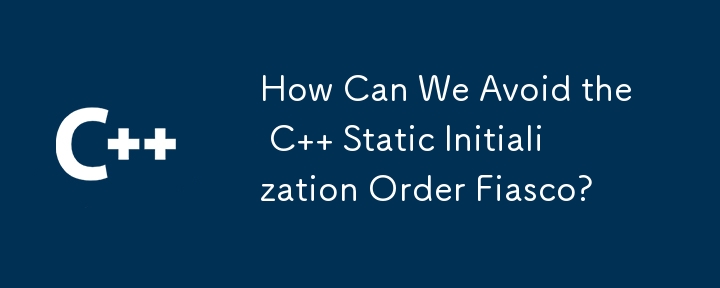

Avoiding the Static Initialization Order "Fiasco" in C
The infamous "static initialization order fiasco" occurs when the order in which static variables of different classes is initialized can lead to unexpected behavior. Traditionally, a common solution has been to wrap static variables in functions to control their initialization order.
However, this approach can be seen as inelegant. A more modern and pattern-oriented solution is to eliminate the use of global variables altogether.
Pattern-Oriented Solution: Avoid Global Variables
The primary cause of the "fiasco" lies in the dependency on global variables, which are initialized in an unpredictable order. By eliminating global variables, the order of initialization becomes less of a concern.
Instead of using global variables, consider using local variables within classes or passing dependencies through method calls. This allows for more explicit control over the initialization process.
Other Techniques
While avoiding global variables is the preferred solution, there are other techniques that can assist in preventing the "fiasco":
The above is the detailed content of How Can We Avoid the C Static Initialization Order Fiasco?. For more information, please follow other related articles on the PHP Chinese website!




